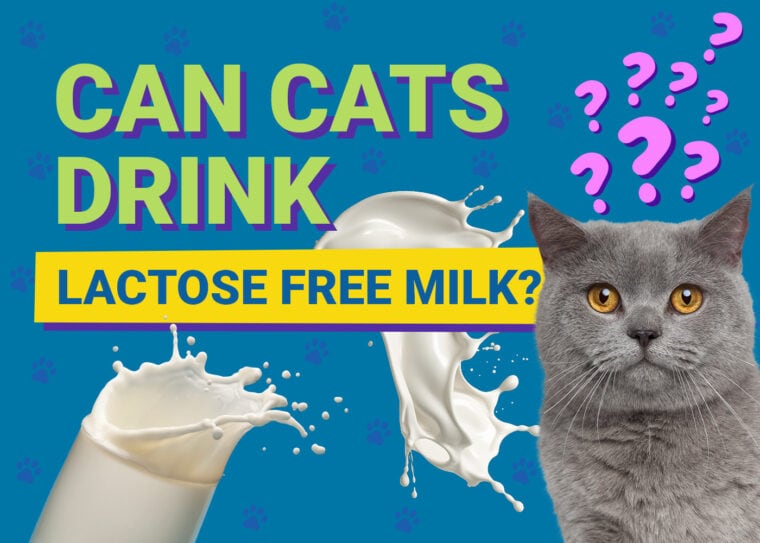
If you asked someone what a cat’s favorite thing to drink is, they’d probably tell you that it’s milk. Milk has long been associated with cats, and it is true that many cats enjoy drinking milk. However, most vets recommend skipping the milk for your cat, even lactose-free options. Milk is high in fat and calories, as well as containing lactose, which cats are unable to properly digest. If you switched your cat to lactose-free milk, would it make a difference?
Not really. Milk is just not something cats need or should have, and it may give them a stomach upset.
Before changing your cat’s diet or introducing new ingredients or supplements that they haven’t eaten before, especially when it comes to human food, make sure to consult your veterinarian first. Every cat is different and requires an individual approach to nutrition, depending on their age, health, level of activity, and medical history. The guidelines offered in our article have been fact-checked and approved by a veterinarian but should be used as a mere guide on food safety, rather than an individual nutrition plan.
Can Cats Drink Lactose-Free Milk?
Most vets will advise you not to give your cat milk, even if the milk is free of lactose. This is because lactose isn’t the only concern with cats drinking milk. Due to the fat, sugar, and calorie content of milk, there are risks to your cat, including stomach upset in the short term and weight gain long-term. If your cat regularly receives milk over the long term, obesity and obesity-related health conditions, such as osteoarthritis, heart disease, and urinary issues will become a real risk.
Lactose-free milks often contain added sugars to increase their palatability, and the added sugar can cause just as much digestive upset and pose just as many risks as the lactose in regular milk. Plant-based milks are also free of lactose, as well typically being far lower in fat and calories than any type of cow’s milk. These milks aren’t a good option for your cat either, though. Plant-based milks often contain added sugars and flavorings, and most plant-based milks offer minimal nutrients for your cat.

What’s a Better Option for My Cat to Drink?
Any vet will tell you that clean water is the ideal drink for your cat to consume. Many cats chronically under-consume water, leading to dehydration, urinary tract issues, and other health problems. Even though it might seem like a good thing to let your cat drink milk to hydrate them better, this may actually discourage them from drinking more water. Cats that expect they’ll receive milk may “hold out” for the tastier option to be offered to them instead of drinking water.
If your cat doesn’t seem to drink enough water, then you’ll need to find ways to encourage them to consume more liquids. This isn’t achieved through the addition of milk, though. Wet cat foods are primarily composed of water, making them an excellent option for supporting hydration in cats.
Some cats may prefer to drink moving water, so there are a ton of cat fountains on the market that can help to stimulate increased water consumption. Some people even leave a faucet dripping so their cat can drink from it when they want to, although this might not be great for your water bill. Offer several water bowls throughout the house to encourage them to have a drink in every room, and make sure it’s always fresh.
In Conclusion
Lactose-free milk may sound like a better option for your cat than regular milk, but it really isn’t. Milk is too high in calories, fat, and sugars to be an appropriate treat for your cat to receive, even if it’s free of lactose.
Lactose-free and plant-based milks often contain added sugars and flavorings that aren’t healthy for your cat, so it’s best to avoid them entirely. Aim to find ways to encourage your cat to increase their water consumption every day if you think they aren’t drinking enough.
See Also:
- Can Cats Drink Dog Milk? Vet-Reviewed Facts, FAQ & Advice
- Can Cats Drink Oat Milk? Vet-Reviewed Facts & Tips







